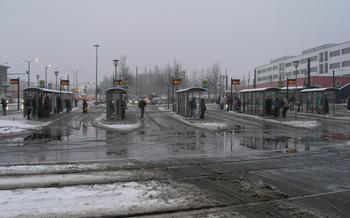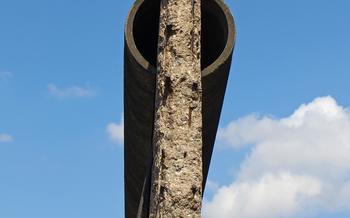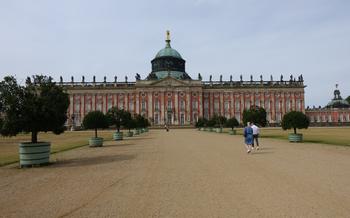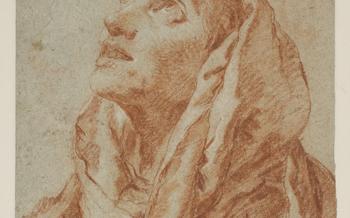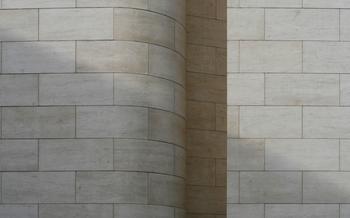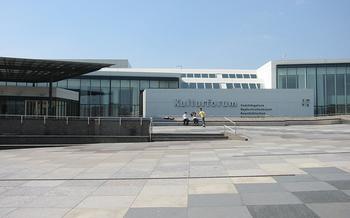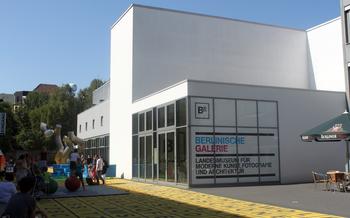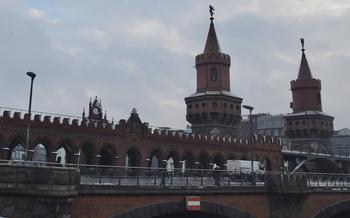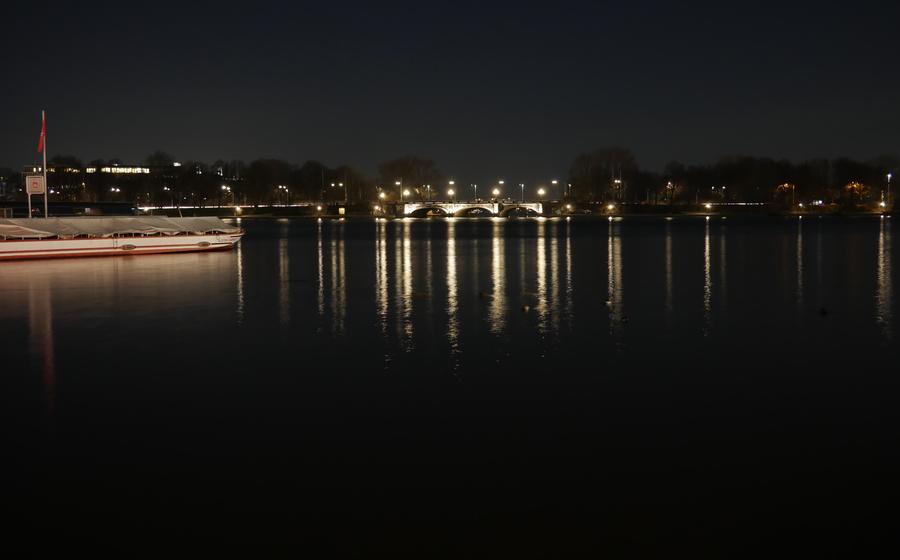
Dialog in the Dunkel
- Educational Experience
- Sensory Deprivation
- Guided Tours
- Dining in Darkness
- Workshops and Activities
- Team Building and Corporate Events
- Accessibility
- History of Dialog in the Dunkel
- Research and Collaboration
- Social Impact
- Awards and Recognition
- Visitor Testimonials
- Safety and Precautions
- Insider Tip
Educational Experience
Dialog in the Dunkel offers a unique educational experience that raises awareness about blindness and the challenges faced by the visually impaired. Visitors are given the opportunity to experience life from a blind person's perspective through interactive exhibits and activities that simulate blindness.
By participating in these activities, visitors gain a deeper understanding of the difficulties and triumphs of living with blindness. They learn about the different ways that blind people navigate the world, communicate with others, and perform everyday tasks.
Dialog in the Dunkel also provides a platform for dialogue and discussion about blindness and other disabilities. Visitors are encouraged to ask questions, share their thoughts, and challenge their preconceptions about blindness.
Through this immersive experience, Dialog in the Dunkel fosters empathy, understanding, and a newfound appreciation for the abilities and resilience of people with disabilities.
Sensory Deprivation
Dialog in the Dunkel offers a unique opportunity to experience sensory deprivation, a state where one or more of the senses are blocked or reduced. In this case, sight is the primary sense that is deprived. By simulating blindness, the Dialog in the Dunkel experience aims to heighten the other senses and provide a deeper understanding of the challenges faced by visually impaired individuals.
Sensory deprivation can be a powerful tool for relaxation and stress relief. By removing the constant bombardment of visual stimuli, the mind and body can enter a state of deep relaxation, reducing stress levels and promoting overall well-being.
Navigating in darkness can be a challenging but rewarding experience. It requires a heightened awareness of the other senses, such as touch, hearing, and smell. Visitors to Dialog in the Dunkel are encouraged to explore the space using their non-visual senses, relying on their intuition and problem-solving skills to find their way around.
Anecdote:
During my visit to Dialog in the Dunkel, I was surprised by how quickly I adapted to the lack of sight. At first, I felt disoriented and unsure, but as I explored the space, I began to rely more on my other senses. I found that I was able to navigate the room, identify objects, and even interact with others without the use of my vision. This experience gave me a newfound appreciation for the capabilities of the human senses and the resilience of the human spirit.
Guided Tours
At Dialog in the Dunkel, the experience is made all the more immersive and educational by the presence of blind guides. These specially trained individuals lead visitors through the various exhibits and activities, providing insights and perspectives that would be impossible to gain otherwise.
Blind guides play a crucial role in helping visitors understand the challenges faced by people with visual impairments. They demonstrate how to navigate obstacles, identify objects through touch and sound, and communicate effectively in a world without sight. Through their personal stories and experiences, blind guides offer visitors a glimpse into the unique strengths and abilities of the visually impaired community.
The communication and trust between guides and visitors are paramount to the success of the Dialog in the Dunkel experience. Visitors are encouraged to ask questions, share their thoughts and feelings, and work together with their guides to overcome the challenges of navigating in darkness.
Blind guides undergo rigorous training and certification to ensure they are equipped with the skills and knowledge necessary to provide a safe and informative experience for visitors. They receive extensive training in orientation and mobility, communication techniques, and the history and culture of blindness.
The opportunity to interact with blind guides is invaluable for visitors, as it allows them to break down stereotypes, challenge misconceptions, and develop a deeper understanding of blindness. The guides' expertise and personal stories help visitors gain a newfound appreciation for the resilience, determination, and creativity of people with visual impairments.
Dining in Darkness
Imagine stepping into a restaurant and being plunged into complete darkness. No light, no sight, just the sound of your breathing and the clinking of silverware. At Dialog in the Dunkel, this unique dining experience awaits you.
The concept is simple yet profound: to dine in complete darkness, relying solely on your other senses. As your eyes adjust to the absence of light, your sense of smell, taste, touch, and hearing become heightened, creating a new and extraordinary dining experience.
The challenge begins as you navigate your way to your table, guided by the gentle touch of your blind server. The menu, written in Braille, is read aloud to you, and you must choose your meal based on taste and description alone.
The food arrives, and you tentatively take your first bite. The flavours are intense and unfamiliar, as your taste buds work overtime to decipher each ingredient. You reach out to feel the texture of your food, using your fingers to explore the plate.
Dining in darkness is a journey of discovery, both culinary and personal. It forces you to confront your reliance on sight and to appreciate the world in a new way. It is an experience that will challenge your senses, expand your consciousness, and leave you with a newfound appreciation for the gift of sight.
Dialog in the Dunkel offers a variety of menu options, including vegetarian and vegan dishes. Special dietary requirements can also be accommodated with advance notice.
Workshops and Activities
In addition to guided tours and dining in the dark, Dialog in the Dunkel offers a variety of workshops and activities that provide visitors with a deeper understanding of blindness and sensory deprivation. These workshops are designed to be both educational and enjoyable, and they offer a unique opportunity to learn new skills and challenge your perceptions.
Some of the workshops offered at Dialog in the Dunkel include cooking classes, painting workshops, and music therapy sessions. In the cooking classes, participants learn how to prepare and cook a meal without the use of sight. This is a great way to develop your sense of taste and smell and to learn more about the challenges faced by blind people in the kitchen.
In the painting workshops, participants are guided by blind artists as they create their own works of art. This is a unique opportunity to learn about different artistic techniques and to experience the creative process from a new perspective.
Music therapy sessions at Dialog in the Dunkel provide a relaxing and therapeutic way to explore the power of music. Participants can learn how to play musical instruments, sing, or simply listen to music in a completely dark environment.
These are just a few of the many workshops and activities offered at Dialog in the Dunkel. By participating in these activities, visitors can gain a deeper understanding of blindness and sensory deprivation, while also having a lot of fun.
To book a workshop or activity, simply visit the Dialog in the Dunkel website or call the customer service number. Workshops and activities are available for individuals, groups, and corporate events.
Team Building and Corporate Events
Dialog in the Dunkel offers a unique and unforgettable team-building experience for corporate groups. The sensory-deprived environment creates a level playing field, where participants from all backgrounds and abilities can work together on a common goal. This can help to break down barriers, build trust, and foster communication and collaboration.
In the darkness, teams must rely on their other senses to navigate, solve problems, and make decisions. This can be a challenging but rewarding experience, as it requires participants to step outside of their comfort zones and learn to rely on each other.
Dialog in the Dunkel offers a variety of team-building activities, such as problem-solving challenges, communication exercises, and creative workshops. These activities are designed to help teams develop essential skills such as trust, communication, problem-solving, and teamwork.
Corporate groups can also book customized events at Dialog in the Dunkel, tailored to their specific needs and objectives. These events can include dining in the dark, guided tours, workshops, and team-building activities.
Accessibility
Dialog in the Dunkel is committed to providing an accessible and inclusive experience for all visitors. The facility is wheelchair accessible, with ramps and elevators available throughout the exhibition space. Trained staff are always on hand to assist visitors with disabilities, providing guidance and support as needed. Audio guides are available in multiple languages, including English, German, French, Spanish, and Italian, and tactile maps and models are provided to help visitors navigate the exhibition.
The restaurant at Dialog in the Dunkel also caters to visitors with specific dietary requirements, offering a variety of gluten-free, lactose-free, and vegan options. Visitors are encouraged to inform the staff of any dietary restrictions or allergies when making their reservation.
To ensure a smooth and enjoyable visit for all, Dialog in the Dunkel recommends that visitors with specific needs contact the organisation in advance to discuss their requirements. The staff will be happy to provide additional information and assistance to make sure that everyone has a positive and memorable experience.
History of Dialog in the Dunkel
Dialog in the Dunkel, meaning "Dialogue in the Dark," was founded in 1988 by Andreas Heinecke, a German social entrepreneur and innovator. Heinecke's vision was to create an immersive and interactive experience that would raise awareness about blindness and the challenges faced by visually impaired individuals. He believed that by simulating blindness, people could gain a deeper understanding and empathy for those who live with this disability.
The first Dialog in the Dunkel exhibition opened in Hamburg, Germany, in 198It quickly gained popularity and recognition for its unique and transformative approach to educating the public about blindness. Over the years, Dialog in the Dunkel has expanded to include multiple locations worldwide, including Berlin, London, Paris, and New York City.
The success of Dialog in the Dunkel has led to the establishment of similar exhibitions and programs in other countries. These initiatives share the common goal of raising awareness and promoting understanding of blindness and other disabilities. Today, Dialog in the Dunkel remains a leading organization in the field of sensory deprivation and disability awareness, continuing to impact lives and foster empathy through its unique and powerful experiences.
Research and Collaboration
Dialog in the Dunkel has established valuable partnerships with universities and research institutions to advance knowledge and understanding in the field of blindness and sensory deprivation. This collaboration has led to ongoing research projects, scientific publications, and presentations at conferences.
The organisation's research focuses on various aspects of blindness, including the impact of sensory deprivation on perception, cognition, and behaviour. Through collaboration with experts in psychology, neuroscience, and education, Dialog in the Dunkel contributes to a deeper understanding of the challenges faced by individuals with visual impairments.
The research conducted at Dialog in the Dunkel has practical implications for the development of assistive technologies, educational programs, and rehabilitation strategies for people with blindness. The organisation's commitment to evidence-based practices ensures that its programs and activities are informed by the latest scientific findings.
By fostering a spirit of collaboration and innovation, Dialog in the Dunkel plays a vital role in advancing knowledge and improving the lives of individuals with visual impairments. The organisation's dedication to research and collaboration has earned it a reputation as a leader in the field of blindness and sensory deprivation.
Social Impact
Dialog in the Dunkel is committed to making a positive social impact by actively working with visually impaired individuals and communities. The organization's mission extends beyond raising awareness and providing a unique experience; it seeks to empower and support the blind and visually impaired.
Dialog in the Dunkel collaborates with various organizations and institutions to offer educational programs and initiatives. These programs aim to provide visually impaired individuals with skills, resources, and opportunities for personal and professional development. The organization also advocates for the rights of people with disabilities, working to break down barriers, promote inclusivity, and challenge societal stereotypes.
Through its educational programs and advocacy efforts, Dialog in the Dunkel strives to create a more inclusive and equitable society where people with disabilities are empowered to live full and independent lives. The organization's commitment to social impact has earned it recognition and respect, making it a leading advocate for the rights of people with disabilities in Germany and beyond.
Awards and Recognition
Dialog in the Dunkel has garnered numerous prestigious awards and recognitions for its innovative approach, positive impact, and dedication to raising awareness about blindness and other disabilities. These accolades serve as a testament to the organization's excellence and the profound impact it has made on society.
Some notable awards include the German Tourism Award, the Hamburg Tourism Prize, and the Social Innovation Award. These awards recognize Dialog in the Dunkel's unique concept, its ability to create transformative experiences for visitors, and its commitment to promoting inclusion and accessibility.
The organization has also been featured in numerous publications and media outlets, including The New York Times, The Guardian, and CNN. These accolades and media attention have helped to raise awareness about Dialog in the Dunkel's mission and the importance of understanding and supporting individuals with disabilities.
The recognition and praise that Dialog in the Dunkel has received are a reflection of its dedication to creating a more inclusive and empathetic society. The organization's ongoing efforts to educate and inspire visitors continue to make a positive impact on the lives of many.
Visitor Testimonials
Dialog in the Dunkel has received countless positive testimonials from visitors who have been touched and inspired by their experience. Many visitors have expressed their gratitude for the opportunity to gain a deeper understanding of blindness and the challenges faced by visually impaired individuals.
One visitor, Sarah, shared her experience: "I never realized how much I rely on my sight until I visited Dialog in the Dunkel. It was a truly humbling experience that made me more appreciative of the things I take for granted. I highly recommend this to anyone who wants to learn more about blindness and empathy."
Another visitor, John, said: "I was amazed by how well I was able to navigate in the darkness with the help of my blind guide. It was a challenging but rewarding experience that helped me to overcome my fears and biases about blindness. I left Dialog in the Dunkel with a new perspective on life."
These testimonials reflect the powerful impact that Dialog in the Dunkel has on its visitors. By providing a unique and immersive experience, Dialog in the Dunkel helps to break down barriers and foster greater understanding and empathy towards the blind community.
Safety and Precautions
Dialog in the Dunkel prioritizes the safety and well-being of its visitors. To ensure a safe and enjoyable experience, the organization has implemented comprehensive safety measures and protocols. All guides undergo rigorous training to assist visitors effectively in the dark, ensuring their safety and comfort.
Before embarking on the experience, visitors are provided with clear instructions and guidelines to follow. These guidelines help ensure that everyone can navigate the dark environment safely. Additionally, Dialog in the Dunkel maintains open communication with visitors throughout the experience, addressing any concerns or fears they may have.
Visitors are encouraged to wear comfortable, non-restrictive clothing and footwear to facilitate movement in the dark. It is important to note that personal belongings, such as phones and cameras, are not permitted inside the dark exhibition area to minimize distractions and ensure the safety of all participants.
Dialog in the Dunkel is committed to providing a safe and inclusive environment for all visitors. By adhering to the safety guidelines and following the instructions provided by the guides, visitors can fully immerse themselves in the unique experience while ensuring their safety and well-being.
Insider Tip
To make the most of your visit to Dialog in the Dunkel, here are a few insider tips:
-
Book your visit in advance: This is especially important if you want to participate in a specific workshop or activity, as they tend to fill up quickly.
-
Arrive early: This will give you time to adjust to the darkness and get oriented before your tour begins.
-
Be open-minded: Let go of your expectations and embrace the unique experience of being in complete darkness.
-
Trust your guide: Your blind guide will be there to help you navigate the space and answer any questions you may have.
-
Don't be afraid to ask questions: If you're curious about something, don't hesitate to ask your guide. They are there to help you learn and understand.
-
Be patient with yourself: It may take some time to adjust to being in darkness, and that's okay. Just relax and let your senses guide you.
-
Enjoy the experience: Dialog in the Dunkel is a truly unique and unforgettable experience. Take your time, savor the moment, and let it change your perspective on blindness.
